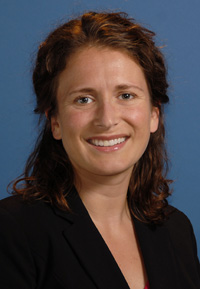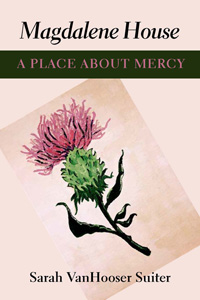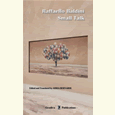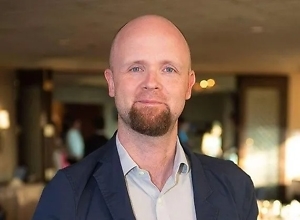What the World Could Be
Sarah VanHooser Suiter writes about the two years she spent learning from the women of Magdalene
Since its founding in 1997, Nashville’s Magdalene House, a two-year residential program for the recovery of women trapped in addiction and prostitution, has inspired almost countless news stories and magazine articles, capturing the hearts and imaginations of people in Nashville, across the South, and all the way to the White House, where founder Becca Stevens was named a “Champion of Change.” In Magdalene House: A Place about Mercy, social scientist Sarah VanHooser Suiter investigates what draws residents, donors, and community support to its unique model and ethos.
In its fifteen year history, Magdalene House has grown in size, in the variety of its programs, and in the depth of support from private donors and volunteers. In her research, Suiter discovered the unique ways in which the message of Magdalene House changes destructive patterns of thought and discourse. In explaining the magnitude of the social problems these programs address, as well as the magnetism they hold for Magdalene’s supporters, Suiter quotes Becca Stevens: “There is a mystique about it (addiction and prostitution), and I think everybody knows there’s a part of themselves that’s a part of it, too—that we sell ourselves to get something else.”
 Magdalene women often speak of their recovery at fundraising events, not only for Magdalene House but also for Magdalene’s cottage industry, Thistle Farms, which produces beauty and relaxation products. Suiter hears in their speech a belief “that talking about Magdalene has the power to cast a vision for what the world could be: a place where people love without judgment, care for their neighbors, support one another regardless of circumstance, and defend human dignity.”
Magdalene women often speak of their recovery at fundraising events, not only for Magdalene House but also for Magdalene’s cottage industry, Thistle Farms, which produces beauty and relaxation products. Suiter hears in their speech a belief “that talking about Magdalene has the power to cast a vision for what the world could be: a place where people love without judgment, care for their neighbors, support one another regardless of circumstance, and defend human dignity.”
Suiter recently answered questions from Chapter 16 via email about what it was like to be charged with telling the story of Magdalene, both as an insider and an outsider, as a researcher and as a woman relating to other women:
Chapter 16: The story of Magdalene as a place of recovery and healing has been told by its residents and by its founder, Becca Stevens, in books, sermons, and even a recent NPR documentary. What inspired you to tell the story again from your own perspective?
Suiter: I think there are several things. First, people who have told the story in the past have, for the most part, either been insiders (Becca, the women from Magdalene who speak), or have been outsiders (journalists who come for a day or two or three and gather information for their stories). I was somewhere in between.
I was an outsider in the sense that I was doing research—I was gathering data about a community using a systematic process (qualitative research) that is governed by its own set of methods, rules, and norms which, when done well, allows its users to stand behind the credibility and validity of the information they gather and the conclusions at which they arrive. No qualitative researcher would tell you that their research is “objective,” because most of us are pretty skeptical about the possibility of objectivity in social science. But most qualitative researchers (including me) would say that the methods we use allow us to draw certain conclusions and stand behind them as valid. Along with that, there is a lot of information about the community (for example, the specifics of how their treatment program operates) that typically is not included in other accounts because, for people working in shorter formats (sermons, newspaper article, radio series), there just isn’t as much room to explore those kinds of details.
On the other hand, I consider myself something of an insider in the sense that I spent two or three days a week for two years working at Thistle Farms, talking with Magdalene community members, attending events, conducting interviews, and the like. There are things that you learn from being a part of a community for two years that I do not think you can learn in two or three days or even six months.
I should be clear that I think Becca, the women at Magdalene, and the journalists who visit the community do an excellent job of telling the story of Magdalene. I would assert that no one tells it more powerfully than Becca. But I do think that my telling offers something that the other formats don’t. I recently gave a copy of the book to all of the women I interviewed for my research, and I ran into one of them after she had read it. She said three things about it. First, she said “I couldn’t put it down.” Then she said, “You told the truth.” And third she said, “You really did change our names, just like you said you would.”
I couldn’t have been happier with her review. Writing about people in a way that is truthful and respectful can be difficult—people, all people—are so messy. So I was so honored that she liked the book and that she thought it was an accurate representation of the community and the women who live and work within the community. I also thought her comment, “You changed our names, just like you said you would,” said something really powerful about the responsibility of telling other people’s stories. The women at Magdalene were trusting me with something personal and valuable when they told me their stories, and I suspect they were aware that it was a risk, that I may or may not do what I said I was going to do. She noticed that I treated them with respect, and I think that communicated that I appreciated their value and power.
Chapter 16: You argue for the value of personal storytelling to combat the myths that many cultures have promulgated about women throughout history. Why do such myths have so much power over us? How can one story in one lifetime compete with a myth that has persisted over generations?
Suiter: We make sense of our lives by telling stories about them and mapping them onto other, existing stories. When those stories are demoralizing or marginalizing (as they often are in the case of addiction, mental illness, sex work, homelessness), we start to believe those things about ourselves. Every woman I interviewed had heard someone—a clinician, a police officer, a family member, a friend—say, “You’ll always be an addict” or “You’ll never recover,” or “You’re not worth anything more than what you can do for me.”
 A part of the recovery process at Magdalene is community members giving each other the space and the support to create a new story. These new stories are powerful in combating broader narratives because those narratives, while powerful, are also an aggregate, a projection, or an overgeneralization. This means they’ve been cleaned up and adjusted to fit a neat, tidy narrative. And I think individual stories teach us to be wary of stories that are too neat, to be careful of assumptions that are too easy. They don’t have details, they don’t have faces, they don’t have the nuances that make us hear something and go, “That’s true.” Individual stories are stories that have all of those things—details, a face, nuance—they’re raw and gritty, and that’s what makes them powerful. They’re authentic.
A part of the recovery process at Magdalene is community members giving each other the space and the support to create a new story. These new stories are powerful in combating broader narratives because those narratives, while powerful, are also an aggregate, a projection, or an overgeneralization. This means they’ve been cleaned up and adjusted to fit a neat, tidy narrative. And I think individual stories teach us to be wary of stories that are too neat, to be careful of assumptions that are too easy. They don’t have details, they don’t have faces, they don’t have the nuances that make us hear something and go, “That’s true.” Individual stories are stories that have all of those things—details, a face, nuance—they’re raw and gritty, and that’s what makes them powerful. They’re authentic.
Chapter 16: While your book grew out of your doctoral research, the book glitters with the details of individual stories told in the vivid language of those who lived them. Is there a particular story that struck you most deeply?
Suiter: This is hard to answer. Every single story was powerful, and so many of the women at Magdalene are such beautiful storytellers. Every time I interviewed a Magdalene resident or graduate, I was bowled over by the things she had experienced, amazed at the strength and courage it took to heal from those things.
Chapter Three of the book is the story of one woman, Marion (not her real name), told in her own words. Her story was compelling enough to merit its own chapter, so I guess I’ll talk about her story. I probably read the transcript of her interview thirty times while I was working on Chapter Three, and every time I read it, I got tears in my eyes when she described getting out of jail and going to Magdalene. When she arrived, the women who were already living in the community (only four of them at that time) rushed out the front door and into the front yard to meet her. They hugged her and laughed with her and said, “Welcome home.” There is something about that type of hospitality—the embrace of a loving community—that sums up so much of what I think women experience at Magdalene.
Chapter 16: You describe one goal of the book as seeking “a full definition of healing” through a multi-faceted understanding of suffering. What are some aspects of healing and/or suffering that you feel have been overlooked in the past by society? How does Magdalene bring them into focus?
Suiter: Addiction and mental illness are huge, expensive problems that no one really seems to know how to address. Or if they do know how to address them, they aren’t willing to expend the resources that it takes to deal with them, despite the fact that investing in successful drug and alcohol addiction treatment turns out to be a great investment. According to the Substance Abuse and Mental Health Services Administration’s National Survey on Drug Use and Health, 23.5 million persons aged twelve or older needed treatment for an illicit drug or alcohol abuse problem in 2009. Of these, only 2.6 million—11.2 percent of those who needed treatment—received it at a specialty facility, and many received no treatment at all. In 2002, the estimated cost to society of untreated drug abuse was $181 billion, $107 billion of which was associated with drug-related crime. I think one of the most important things about Magdalene is that they are willing to take on and embrace women with really severe problems—drug addiction, co-morbid mental illnesses, physical illnesses, histories of involvement in sex work, experiences with abuse, and the like—that a lot of treatment facilities are not willing or able to take on.
Beyond that, they understand healing in such a way that recovery is never a quick fix. Women at Magdalene are given two years to “heal,” and the majority of women continue to be a part of the community for a long time after that. Staff, residents, graduates, and volunteers at Magdalene are aware that healing is messy, so they allow enough individual, personalized attention and resources that each woman can figure out what works for her. They know that healing requires relationship-building and reconciliation, so the community is designed to facilitate those things.
Sarah VanHooser Suiter will discuss Magdalene House at the twenty-fourth annual Southern Festival of Books, held October 12-14 at Legislative Plaza in Nashville. All events are free and open to the public.





